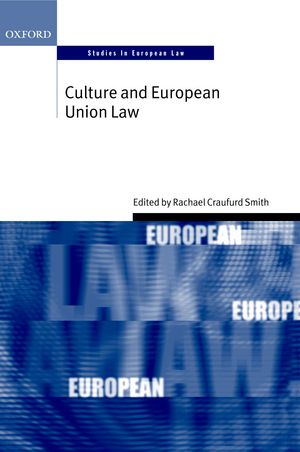
This book explores the relationship between European Union law, culture, and identity. Community trade and competition rules have certainly affected many mundane, though highly formative, aspects of our day-to-day lives: when we shop, what we drink, even which football matches we watch on television. But Community law is not merely a vehicle for challenging established national rules which have a cultural dimension: Article 151 of the EC Treaty, which came into force in 1993, empowers the Community to 'contribute to the flowering of the cultures of the Member States', whilst at the same time bringing the 'common cultural heritage to the fore'.;This book explores some of the challenges facing the European Union in developing convincing and coherent policies in the cultural domain. These challenges stem not only from the Union's fragmented institutional structure and Member State sensitivities but also from the uncertainty which surrounds the very meaning of the term 'culture' itself. The wide-ranging contributions illustrate how cultural issues can be seen to permeate all aspects of European Union law, by focussing on areas as diverse as international trade and aid, education, sport, language use, and the mass media.